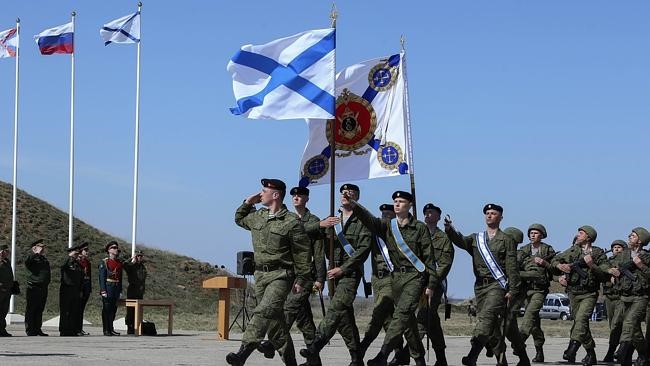Week Dates: Nov 23-29 2015
Articles Due: Nov 20 2015
Article Length: 500-1500 Words
Submit to: nextwar(at)cimsec(dot)org
Amidst headline-grabbing activities on land in Ukraine and Syria, Russia is steadily pursuing new strategies at sea. From assuring Black Sea access with the annexation of Crimea to joint Pacific exercises with China, recent Russian activities represent a level of commitment to sea power unseen since the dissolution of the Soviet Union.
During the first week of November, CIMSEC will host a series exploring the maritime implications of Russia’s strategic goals, Russia’s capacity to execute its strategy at sea, and the implications of Russian strategy and policy for its neighbors, partners and adversaries. Potential topics, in order of broadest to most focused, could include: Is Russia a natural sea power, land power, or somehow both? What ends does Russia hope to achieve through sea power? What relationships is Russia looking to enhance or destabilize through stepped-up maritime activity? What asymmetries with the maritime strategies of NATO, the U.S., China, and others does Russian strategy hope to exploit? What policies should Russia pursue in the Arctic, and why? Does Russia have the economic and industrial strength to recapitalize its seagoing fleet? How much does the Russian economy depend on seaborne trade, legal and illicit? Does Russia possess an expeditionary capability? How does the concept of hybrid war, as practiced in Ukraine, extend to the maritime sphere? What role, if any, does or should Russia have in the humanitarian crisis in the Mediterranean? And, to all of these questions, how should other countries adjust their strategies to react?
Contributions should be between 500 and 1500 words in length and submitted no later than 20 November 2015. Publication reviews will also be accepted. CIMSEC will re-post selected older entries about Russian maritime activity, as well.
Matt McLaughlin is a U.S. Navy Surface Warfare Officer. His opinions do not represent the Department of the Navy.

